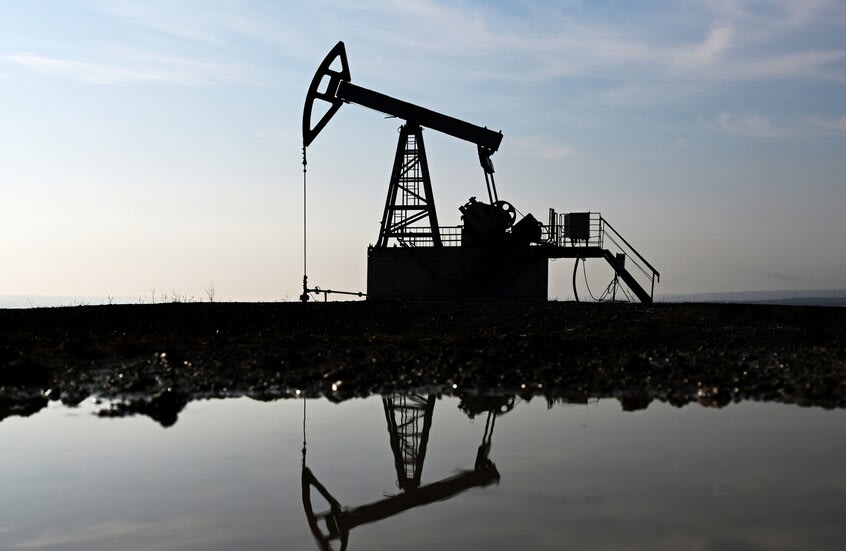The Middle East crisis pushes oil prices to a historical jump of 7%.

Global oil markets witnessed a sharp increase at the close of trading on Friday, June 13, with a rise exceeding 7%, following the military escalation between Iran and Israel, raising concerns among investors about a potential disruption of oil exports from the Middle East region.
Record-breaking Prices
Brent crude futures jumped by 7.02%, marking an increase of $4.87 to reach $74.23 per barrel, hitting a peak during the session at $78.5, the highest level since January 27.
Similarly, U.S. West Texas Intermediate crude rose by 7.62%, or $4.94, to reach $72.98 per barrel, surging over 14% during trading to hit $77.62, the highest price since January 21, according to Reuters data.
These gains represent the largest daily increase for both types of oil since 2022, when the Russo-Ukrainian war caused sharp disruptions in energy markets.
Military Escalation Threatens Supply Stability
Israel announced targeting Iranian nuclear facilities, missile factories, and military leaders in an operation described as a "long-term" effort to halt the Iranian nuclear program, while Iran threatened a "harsh response."
Media reports indicated areas in Tel Aviv were hit by Iranian missile strikes after markets closed, with explosions heard in southern Israel.
Concerns of Disruptions in the Strait of Hormuz
The escalation raised new concerns of disrupting oil flow through the Strait of Hormuz, a vital global maritime passage where around 20% of the world's oil consumption, equivalent to 18 to 19 million barrels per day of oil, condensates, and fuels, passes through.
The National Iranian Oil Refining and Distribution Company confirmed that refining and storage facilities were unaffected by the attacks and continue to operate normally.
Iran, an OPEC member, produces about 3.3 million barrels per day and exports over two million barrels per day of oil and fuel.
Warnings of the Impact of the Strait Closure
Ben Hov, head of commodity research at Societe Generale, stated: "Israeli actions have so far avoided Iran's energy infrastructure, including Kharg Island, responsible for about 90% of Iranian crude oil exports."
Analysts warned that Iran could "pay a heavy price" if it closes the strait, while reports indicated that OPEC has surplus production capacity capable of compensating for any disruption in Iranian supplies.
U.S. Calls for Crisis Containment
U.S. President Donald Trump called on Iran to negotiate regarding its nuclear program, warning against continued escalation and "planned attacks" that